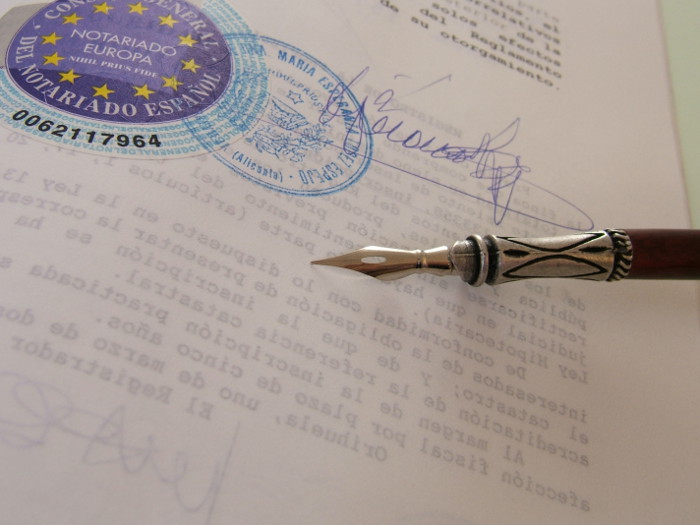Last updated on October 28th, 2019 at 04:45 pm.
A Power of Attorney, called a ‘Poder Notarial’ in Spanish, is a written authorisation to represent somebody in any kind of legal matters or transactions. For example:
- purchase of a property
- sale of a property
- probate in Spain
- obtaining a Spanish NIE number
Power of Attorney is normally granted in favour of someone you trust and it is particularly useful if you are unable to come to Spain and have transactions that need to be completed here. Such a decision does require careful consideration and, obviously, you must have confidence in whoever you delegate to.
However, you can revoke or cancel Power of Attorney if you are not happy with your representative or proxy, although you will have to pay for this process.
Choosing a power of attorney
Most importantly, it must be someone you trust. It could be a relative or a friend or a solicitor who you authorise to protect your legal interests. A Spanish Power of Attorney can be as limited or as comprehensive as you wish. Your solicitor in Spain should help you make the decision about the extent of the power necessary for the transaction you wish to make.
Making a power of attorney
It is essential that you get a good Spanish solicitor to draft the document for you, using the correct terminology. They understand the Spanish legal system better than anyone and are the right people to do the job.
There are two ways of going about making the Power of Attorney:
In Spain – you will have to go to a Public Spanish Notary who is in a position to authorise the POA. The document will be written in Spanish so if you are not fluent yourself you will need someone to translate it. Many solicitors also offer a translation service.
In your own country – you might not be able to come to Spain to arrange the POA, however, you do have the alternative of making the arrangement in your own country. Your Spanish solicitor will draft the document in a bilingual version so that the Notary in your own country can witness you signing the document and knows what it says. As in Spain, this is a very special function that cannot be completed by a solicitor nor a Commissioner for Oaths, only by a Public Notary.
If you happen to live near the Spanish Embassy in your own country the POA can be made by the Notary Service there.
The Apostille of the Hague
An “Apostille” is a stamp that is normally attached to an original document in order to confirm that a signature, seal or stamp on that document is genuine. Without this stamp, foreign documents won’t be accepted by a Spanish Public Notary.
Apostilles are normally issued by the Foreign Office or the Ministry of Foreign Affairs, depending on the country. This standardised legalisation procedure is only valid between countries who are part of the international treaty known as “The Hague Convention of 1961”.
Additionally, there is an agreement signed by several European countries, known as “Agreement number 17 of the CIEC”. For those countries participating there is no obligation to certify a signature or stamp by means of an Apostille. Unfortunately, this agreement does not include countries such as the UK, Ireland, or Sweden.
Sworn translations
All documents issued by a foreign authority to be used before a Spanish Public Notary or any other Public Authority must be translated by an official sworn translator. This is different from obtaining an ordinary translation which might be appropriate for private documents such as contracts, letters and receipts.
A sworn translation is required for public documents and can only be completed by appointed qualified translators, registered in the corresponding Ministry of Foreign Affairs. The sworn translator becomes responsible for the contents of the document they have translated by signing and stamping it, so they not only translate but also certify the contents of official documents.
No comments yet
There are no comments on this post yet.






Leave a comment